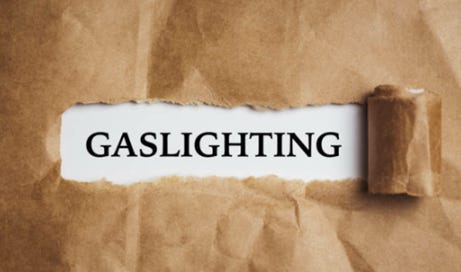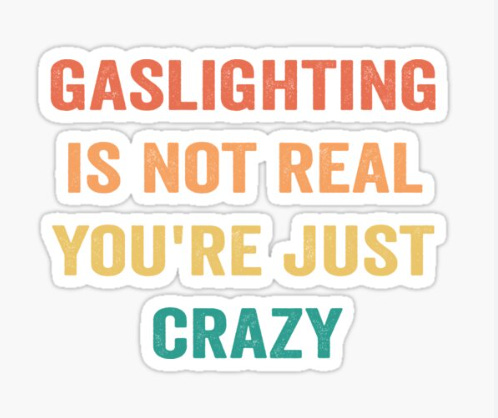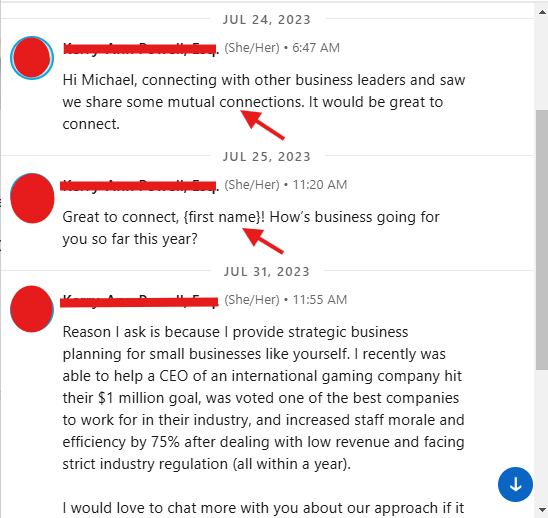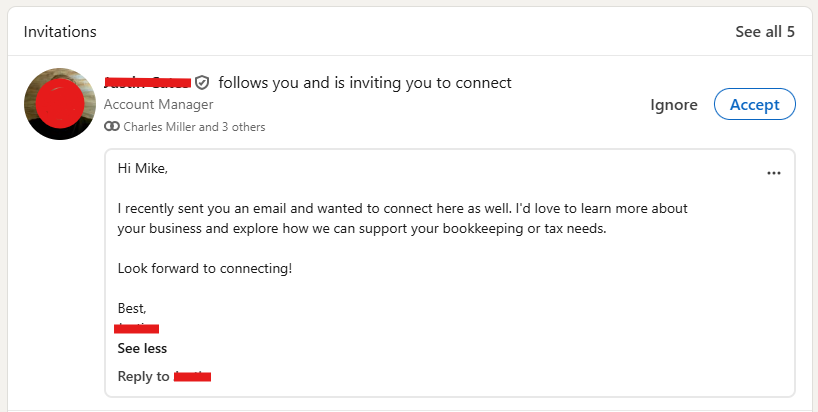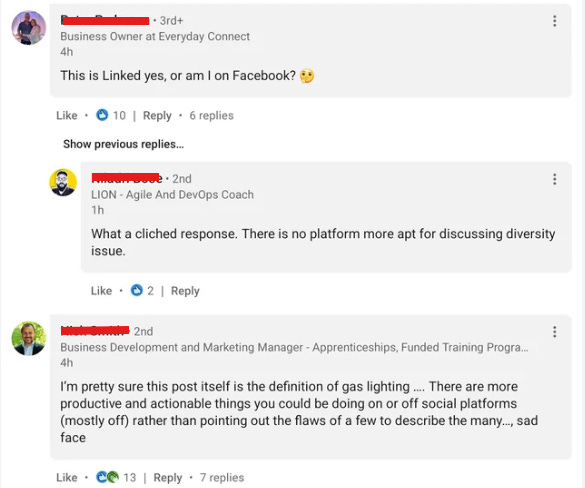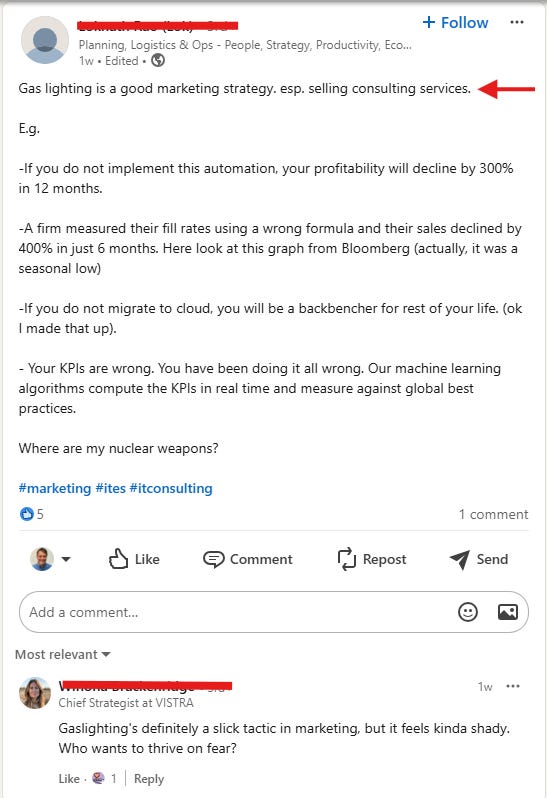Fellow Networkers, Please Stop the Gaslighting
Gaslighting, a manipulative tactic, is now wielded openly in relationships, healthcare, politics, business, and, most recently, networking. So how do you turn off the gas?
In Partnership With Shortform
What’s the secret to becoming an unstoppable networker? It’s all about continuous learning, and one of my favorite game-changing tools is Shortform. They provide exceptionally high-quality, in-depth book guides with summaries, actionable insights, and exercises that help you master key concepts efficiently. Start with Never Eat Alone by Keith Ferrazzi—an essential read for mastering relationship-building. You can tackle five book guides in the time it takes to read one full book. Dive into the wisdom of top thinkers in business and communication, and get ready to elevate your networking game like never before."
Gaslighting is pervasive, seeping into every facet of our lives.
This manipulative strategy is now employed openly in a wide range of contexts, including relationships, healthcare, politics, business, and networking.
Recently, a professional in my network reached out to me to request a meeting.
I really didn’t have time to meet and also heard that his meetings were usually just a one-sided, sales pitch.
I politely replied with a “No thank you … I’m just too busy”.
But he persisted on setting up a meeting with me.
Eventually, I stopped responding.
His last message to me bluntly stated that I was rude for declining a meeting with him and that a “true networker” should meet with all their contacts.
Hmm. It made me think…
Should have I met with this person?
Am I not a “true networker”?
Was I being rude?
Am I going crazy?
❓What is Gaslighting?
In simplest terms, gaslighting is a form of psychological manipulation where someone tries to make you doubt your own reality.
A gaslighter will often deny things you've said or done, twist the truth, and try to convince you that you're crazy or imagining things.
This can leave you feeling confused, anxious, and unsure of yourself.
Here are a few ways I’ve observed gaslighting while networking and the effects it has on people.
"You're too sensitive." This dismisses your feelings and makes you question your own emotional response.
"You're overreacting." This downplays the seriousness of the situation and makes you feel unreasonable.
"That never happened." This denies your experiences and makes you feel like you're going crazy.
"You're not good enough." This undermines your self-worth and makes you feel incompetent.
"You're making a big deal out of nothing." This minimizes your concerns and makes you feel insignificant.
"You're always so negative." This shifts the blame onto you and makes you feel responsible for the negative atmosphere.
"I was just kidding." This disregards the impact of their words and makes you feel like you're being unreasonable.
"You're paranoid." This suggests that your concerns are unfounded and that you're imagining things.
It's important to remember that gaslighting is a form of manipulation and abuse.
If you believe you're being gaslighted in the workplace, it's important to document the incidents, seek support from trusted colleagues or a supervisor, and consider taking legal action if necessary.
🛑 Gaslighting in Your Network
Gaslighting in business networking can manifest in several ways, often exploiting the power dynamics and social nuances of professional relationships.
Here are some common tactics:
Distorting Reality: Networkers may blatantly deny conversations, agreements, or events that took place, leaving you questioning your own memory and perception.
Minimizing Your Feelings: Your concerns may be dismissed as overly sensitive, insignificant, or irrational, invalidating your experiences.
Shifting Blame: When things go wrong, a networker may deflect responsibility onto you, making you feel guilty or responsible for their mistakes.
Withholding Information: Important details or updates may be intentionally omitted, leaving you feeling excluded or uninformed.
Gossiping: The networker may spread rumors or gossip about you to other network members, damaging your reputation and undermining your credibility.
One of the most common platforms where I’ve seen gaslighting is LinkedIn:
“I know you …”
… how have you been, my good friend, {Insert Name Here}?
“I want to support you …”
… by selling my products and services to you.
“You’re in the wrong place …”
… didn’t you read the rules on what can be posted here?
❌ Can Gaslighting Be Good for Business?
Most people, including myself, would wholeheartedly agree that gaslighting is NOT a good business practice. But apparently others think it can be an effective strategy …
I’ve seen gaslighting being used more these days as professionals focus on FOMO (fear of missing out) or infusing fear and punishment rather than focus on a ROI.
In response, professionals should focus on building a positive and supportive work culture based on open communication, respect, and trust. This will lead to happier, more productive partners and a stronger, more successful network.
🎯 The Takeaway
If you suspect you're being gaslighted in a networking situation, be mindful of the following:
Trust Your Instincts: If something feels off, it probably is. Don't dismiss your feelings or doubts.
Document Interactions: Keep records of conversations, emails, and other communications to support your claims, if necessary.
Seek Support: Talk to trusted friends, colleagues, or mentors about your experiences. They can offer valuable advice and support.
Set Boundaries: Establish clear boundaries with the gaslighter, limiting your interactions and protecting your emotional well-being.
Prioritize Your Mental Health: Gaslighting can take a toll on your mental health. Seek professional help if needed to cope with the emotional impact.
Have you experienced gaslighting while networking?
If so, you’re not alone.
Or crazy. 🙂
👀 WHERE TO FIND ME
Facebook: https://www.facebook.com/tipclub
Instagram: https://www.instagram.com/tipclub.inc/
Threads: https://www.threads.net/@tipclub.inc


